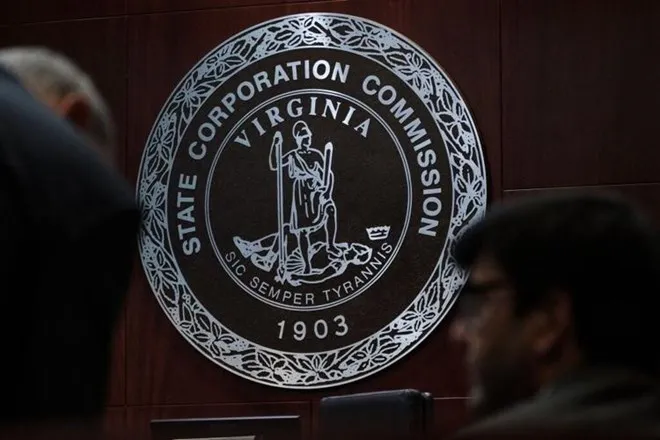WASHINGTON, USA – Money moves a lot faster and a lot farther than when Bureau of Financial Institutions Commissioner Joe Face got started as a state bank examiner four decades ago.
His bureau’s latest effort to protect Virginians had it eyeing money transfers to Somali refugee camps.
Or, rather, trying to.
In 2021, the Bureau of Financial Institutions wanted a look at the books of Hashi Money Wiring, a Washington state-based firm with an agency in Northern Virginia. The firm does most of its business sending money to Somalia and to Somali refugees in neighboring nations.
Such examinations are routinely required to make sure that money-transmitting companies are complying with state law requiring, among other things, that they have the financial resources to honor their promises to transmit and pay out money.
But Patrick Hunt, principal financial analyst at the bureau, found that some records were missing or incomplete.
He also substantiated nine instances when the company provided him incorrect information in hearings before an examiner, according to the State Corporation Commission. The SCC is the parent agency of the bureau.
The company’s attorneys wrote in response to the examiner’s recommendation for a fine of $72,500: “It is important to understand that there is no reason to believe that Hashi ever had financial problems, no reason to believe that its customers were in any way jeopardized, no reason to believe that it in any way did not meet BFI’s financial requirements for a money wiring business.”
That was an unusually large penalty for a financial institutions case — or even for the much larger cases handled by the SCC Bureau of Insurance or its Bureau of Securities.
The aim isn’t just bureaucratic fussiness, Face said.
“We do compliance checks; it’s a consumer protection,” he said. “These days, money can go anywhere in an instant; it’s not like when I started out.”
In Hashi’s case, the bureau’s examination led it to conclude that Virginia consumers’ funds might not be protected when they used the firm’s services. The bureau wanted to revoke the company’s license to do business here. However the SCC did not revoke Hashi’s license, as the BFI originally suggested.
The bureau was after financial information and wanted to check that the company was doing the record-keeping required by the USA Patriot Act and the U.S. Treasury agency that makes sure businesses comply with American economic and financial sanctions, as well as who was paying out money at the other end.
But Hashi filed those quarterly reports with the national clearinghouse for that data months late, according to the bureau, and it did not post its general ledger, as required, through much of 2020.
Hunt said the missing data meant he could not assess the company’s financial position.
In particular, the bureau wanted to see quarterly “call reports” detailing transaction volumes and the investments a transmitter is required to hold in order to back its promise to ship clients’ money.
State law requires money transmitters to have enough funds on hand to at least cover the total of outstanding money orders and all outstanding transfer transactions, not only in Virginia but in all states it does business in.
In appealing the hearing examiner’s recommendation, Hashi reported that it transferred between $4 million and $5 million a year from its Virginia agency, with more than 75% going to Somalia or to Somali refugee camps in Ethiopia and Kenya.
The company’s president, Abdulhakim Hashi, told the hearing examiner the company was backed by some $400,000 in credit union accounts in his name.
He said the company had not had a bank account in its own name since 2016 or 2017 when a local bank in Washington state shut down its account in an effort to reduce its own risks.
Hunt said that in the course of his examination, he found out that Hashi had to surrender its Massachusetts license because the company could not get a bank account.
Hunt said Hashi did not notify the bureau when it surrendered its Texas license after that state started the process of revoking it.
The company’s attorneys said Hashi’s book-keeping and financial reporting problems were the result of the COVID-19 pandemic, and the company has since corrected any problems.
The SCC also formally ordered Hashi to cease violating any part of the state law governing money transmitters.
In addition, it ordered Hashi to maintain a $500,000 surety bond for at least through the completion of the bureau’s next examination in 2024.
Hashi did not respond to a message left at its Seattle headquarters phone. Its Northern Virginia phone was not in service.
Source: Daily Progress





